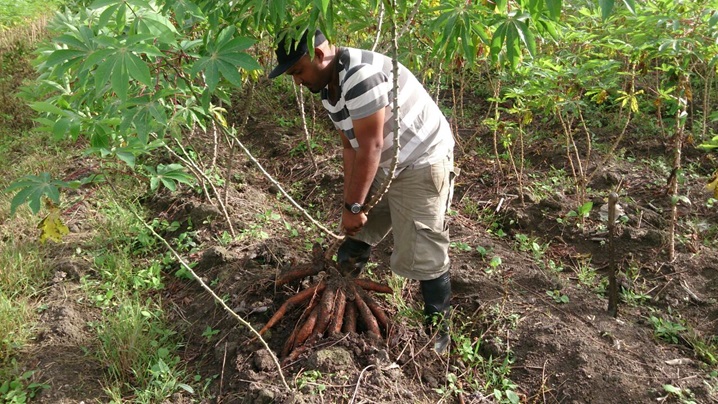Making policy and planning strategies that are practical, useful and workable was the main objetctive at the Ninth Regional Planners Forum on Agriculture in the Caribbean, currently taking place in Trinidad and Tobago.

Port of Spain, Trinidad & Tobago.– A common complaint in any field of work is that high level strategies and policies are made without the input of those they impact. Or, that policies and strategies take time and effort to make but are never really implemented successfully in the areas where they matter.
The CARICOM Secretariat (CCS) and the Inter-American Institute for Co-operation on Agriculture (IICA) aim to tackle that challenge at the Ninth Regional Planners Forum on Agriculture.
“As the environment for agriculture development becomes more competitive and challenging, it is imperative that policy, and the institutions that are at the forefront of the same, remain relevant to the needs and responsive to the realities of the farm and small-medium agribusiness sector,» said Diana Francis, a Policy and Regional Programming Specialist with IICA.
The forum, which is part of the wider Intra-ACP Agricultural Policy Programme (APP) funded by the European Union (EU) under the 10th European Development Fund (EDF), is hosting regional agriculture planners, development organization representatives and youth from around the Caribbean from June 7th to 10th in Port of Spain, Trinidad.
The topic of this particular forum is Strengthening Regional Agricultural Development Policy and Strategy Implementation. In the Caribbean, it is important to address policy and strategy issues at regional forums such as this. National agricultural policies need to be complemented with regional policies and strategies in order to maximize Caribbean agriculture potential in a global market.
”The Region has long recognized the importance of collective action. In agriculture much of the issues are common”, says Ms. Francis. “A fundamental pillar of regional integration is functional cooperation and this is central to good policy at both the national and regional levels.”
Several topics will be addressed at expert and panel-led sessions during the three-day forum. A ground up approach is being taken when looking at policy in the Region. The first session will seek to clarify policy priorities both nationally and regionally, and identify the most effective approaches and tools for policy planning and implementation. A further session will be led by project management professionals to discuss moving from policy to programme.
At the forefront of all of these sessions will be the desire to significantly improve the situation for small-medium size producers, including farmers, in the Caribbean. Policy and strategy are of no use if they don’t address real needs and challenges, and take advantage of opportunities. That is why further sessions and working groups will be carried out which focus on targeted policies for meeting the needs of small and family farms and enabling youth to grow businesses along the entire agriculture and food chain.
A large part of the Caribbean action under the APP is to support and encourage the participation of youth in agriculture. The APP has identified the importance of bringing young people into agri-food value chains in order to generate new entrepreneurs, provide new employment opportunities, support the future of agriculture in the Region and harness the energy, enthusiasm and fresh ideas that they bring to the table.
That is why youth are being included in forum discussions, as well as having their own separate sessions on Creativity for Employment and Business Opportunity (CEBO). This forum “will give the youth a voice and a direct line to the planners who lead the policy formulation process. So far, the youth that have been engaged under the APP have made it abundantly clear that they are not looking for hand-outs but they expect that when they invest their time, intellect and effort to raise capital and investment against all odds to start their own business, that at least the national and regional environment for doing good business will exist”, says Ms. Francis.
During the CEBO sessions at the RPF, facilitators will lead interactive discussions on small business benefits and risks. They will also discuss the need for innovative strategies to achieve and maintain a competitive edge. Participants will take part in critical thinking and team building exercises designed to promote lateral thinking, effective communication and proactive decision-making. And, further sessions will be offered on the environment, marketing, finance and customer service all geared to the agriculture sector.
Additional sessions at the planners’ portion of the forum will include commodity specific approaches to policy, the use of IT in supporting agricultural communication, product marketing, risk management and becoming ‘credit-worthy’. Organizers of the Ninth RPF expect several outputs from the forum including:
For More Information on the Ninth Regional Planners Forum please contact Diana Francis, Officer-in-Charge APP-PMU, by email at diana.francis@iica.int, and/or Taryn de Mendonca at tdemendonca.consultant@caricom.org.
